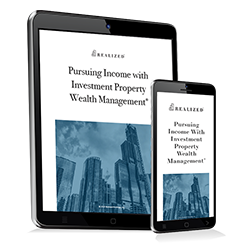
Whether you're currently making large contributions to your IRA account or want to know what's going to happen to your Social Security benefits, you should know how retirement income is taxed in the state you live in. Every state has different requirements and laws related to retirement income taxation. While some states hardly tax any retirement income, other states tax almost all income types. This guide takes a closer look at how some states tax retirement income and if these taxes are balanced by property and sales taxes.
Alabama
Alabama is among the most tax-friendly states for retirees to live in. The state income tax rate ranges from 2-5%. The tax rate is 2% for taxable income of less than $1,000 for joint filers and $500 for individual filers. All income above $6,000 for joint filers and $3,000 for individual filers is taxed at a rate of 5%. Retirees benefit from low property taxes and no estate taxes.
Alaska
Alaska is relatively unique because it doesn't tax retirement income, and there is no sales tax or income tax for anyone who lives in this state. Keep in mind, however, that the high property taxes negate some of these benefits. Another tax advantage that can help you supplement your retirement income is the annual dividend check that Alaska sends to all permanent residents. This check amounts to $1,114.
Arizona
In Arizona, Social Security benefits are exempted from state income taxes. You can also exempt as much as $2,500 income from state government and federal retirement plans. The income tax rate in Arizona is just 2.59% for up to $54,615 of income for married filers and $27,808 for single filers.
Arkansas
The income tax range in Arkansas is 2% for taxable income between $4,800 and $9,499 for people who make less than $23,600 during the year. The initial $4,799 of income has a tax rate of 0.75%. Income tax rates in Arkansas can be as high as 5.9% for taxable income above $8,500 among taxpayers who make $84,500 during the year. There are no inheritance or estate taxes.
California
California has a high income tax rate of 13.3%. In fact, this is the highest tax rate throughout the U.S. However, it only applies to joint filers who make more than $1.25 million and single filers who make more than one million. If you make less than $18,650 in joint income or $9,325 when filing as an individual, your tax rate is 1%. Social Security income isn't taxed.
Colorado
Colorado is among the most tax-friendly places to live and has a flat state income tax of 4.55%. Taxpayers who are 55 and above will be able to exclude a considerable amount of income from state taxes. The amount increases upon reaching 65. Seniors may also qualify for a tax exemption of nearly 50% on $200,000 of property value.
Connecticut
Connecticut is among the least tax-friendly states in the U.S., with a minimum tax rate of 3% that applies to $20,000 of taxable income for joint filers and $10,000 for individual filers. Any income above $1 million for married joint filers and $500,000 for individual filers is taxed at 6.99%. Around 42% of income from an annuity or pension is exempt from taxes.
Delaware
Delaware is a great state for retirees because of its lack of sales tax, no estate taxes, and low property taxes. State income taxes amount to 2.2% on taxable income between $2,001 and $5,000 and 6.6% for taxable income that's higher than $60,000.
Florida
Florida is highly popular among retirees since it doesn't have a state income tax. However, sales taxes can be as much as 8.5%. Anyone who is 65 or older can also benefit from a homestead exemption that reduces property taxes.
Georgia
Georgia has a tax rate of 1% on the initial $1,000 of taxable income for joint filers and $750 for individual filers. The highest tax rate in the state is 5.75%. All Social Security income is considered exempt from being taxed. If you are 65 or older, $65,000 of your retirement income may be exempt from taxes.
Now that you know how retirement income is taxed in various states, you can have a better idea of which state you might want to live in when you retire. Keep in mind that some of the states with no or low income taxes will have higher sales or property taxes. There are also a small selection of states that are considered to be highly tax-friendly with hardly any drawbacks.
Sources:
https://www.aarp.org/money/taxes/info-2020/states-that-dont-tax-retirement-distributions.html
https://smartasset.com/retirement/retirement-taxes
https://www.aarp.org/money/taxes/info-2020/states-that-dont-tax-retirement-distributions.html



